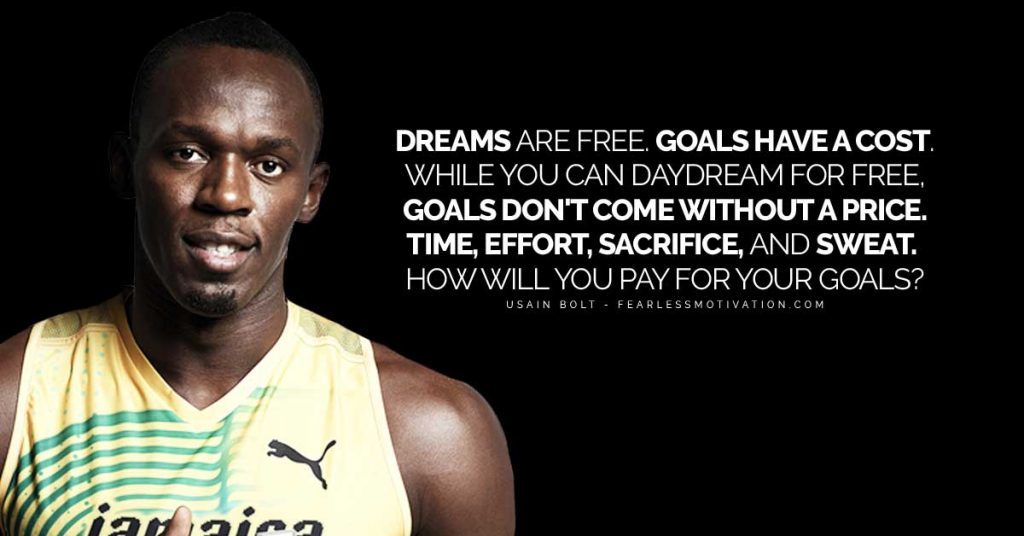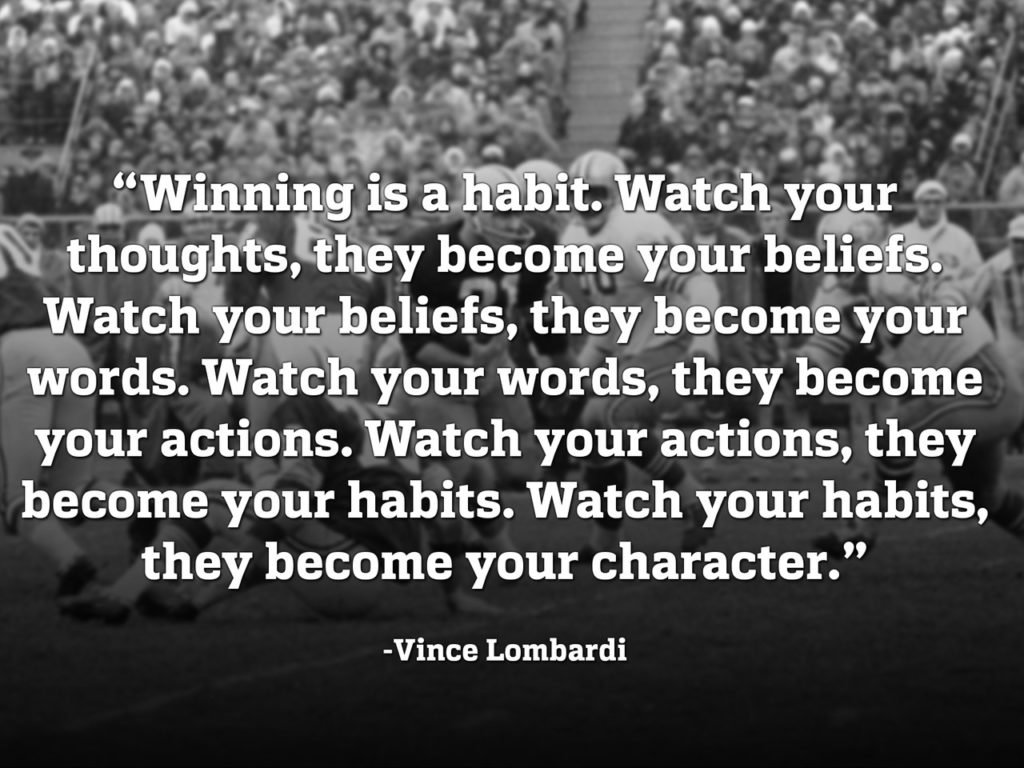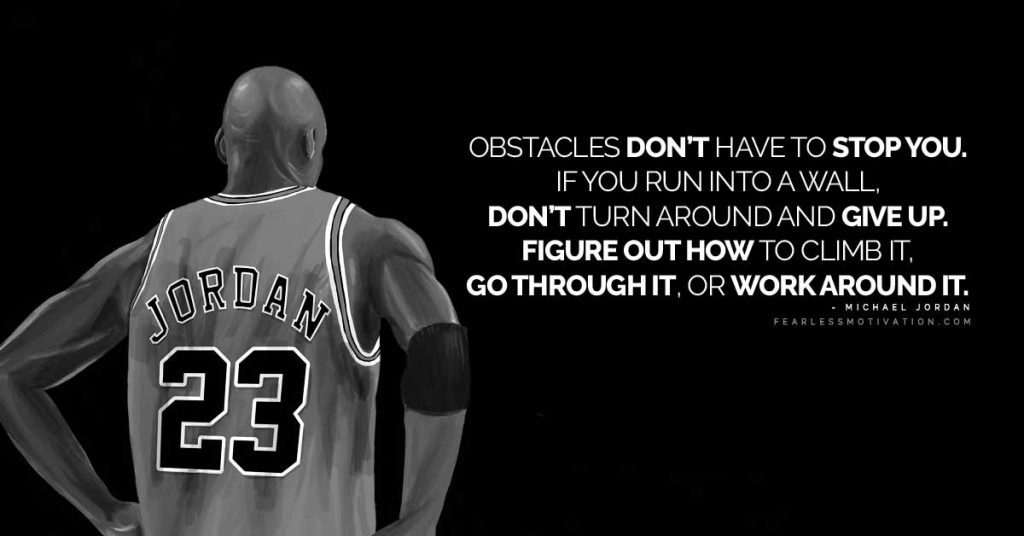“Get comfortable being uncomfortable” – Jillian Michaels
Seek out challenging situations that push you to your limits more often. Spending more time attempting to overcome difficult conditions or opponents in your sport will help you to find a way to come out on top when the odds are against you and when it really matters.
“We are what we repeatedly do. Excellence then, is not an act, but a habit” – Aristotle
Make every session count. Be mindful of what you are putting yourself through every day to provide yourself with foundations of confidence, the opportunity to reach your goals and the evidence to banish any worries or doubts about your performance.
“Whether you think you can, or think you can’t, you are right” – Henry Ford
Get as physically fit as possible. Breaking physical boundaries tears down mental barriers too and will help you to retain that undying belief that no matter what your opposition throws at you, you’ve got this.

“Mistakes are the portals of discovery” – James Joyce
Learn from and then let go of mistakes: they are cornerstones of learning. Mistakes let you know where you are at in your ability and where you can improve. Relish the knowledge that you can gain from mistakes and use them to develop your game to the next level.
“Champions aren’t made in gyms. Champions are made from something deep inside of them: a desire, a dream, a vision” – Muhammad Ali
Bring your best performances to the front of your mind: in conversation, at training, on the start line. Begin, “Remember when I…” Be able to picture yourself in that moment, on the brink of, during and after your top performances. Recount the sights, sounds and feelings as you perform. Keep that vision close.
“Social support is everything” – Jordan Knight
Surround yourself with people that share your vision and utilize your support networks. They are your backbone; you won’t get there alone. Ask your coach to share their experiences and read the autobiographies of athletes that you respect. Find out their story, the adversities they may have faced and how they responded when things got tough. Be a sponge: absorb their wisdom and find ways that you can apply it in your sport and life.

“If you don’t know where you are going, you’ll end up someplace else” – Yogi Berra
Plan. Success is time consuming. It’s not going to happen overnight, over the course of an event, a month, nor perhaps a season. Planning helps you to see smaller performance improvements whilst keeping the bigger picture in focus. It provides motivation day to day, as well as ensuring that you know exactly how you are going to go about making your vision a reality.
“A pessimist sees the difficulty in every opportunity; an optimist sees the opportunity in every difficult” – Winston Churchill
See setbacks as a challenge and compete smart. If you lose a few matches or events on the trot, or are coming back from injury, compete down a level. This will help to restore your confidence and enable you to progress back up the rankings. When setbacks arise, try to remain positive through these stages; they are an integral part of your journey.
“There is a truth to sport, a purity, a drama, an intensity, a spirit that makes it irresistible to take part in and irresistible to watch” – Lord Sebastian Coe
Identify your values. Values are underlying principles that guide the way you think and act. Examples of values might include integrity, bravery and accountability. Make sure you know what your values mean: can you give several examples of what demonstrating these values looks like?
“People of accomplishment rarely sat back and let things happen to them. They went out and happened to things” – Leonardo da Vinci
Finally, be brave. Take risks that others weren’t prepared to take, or weren’t bold enough to. Ask to train with people that you know will push you. Be the creator of your own courage and the driver of your own success.

So what’s the science?
The above tips tap into various sources of sport confidence (Vealey, 2001), including mastery (performing well and achieving personal goals), demonstration of ability over others, physical and mental preparation and social support. Importantly, high self-efficacy increases effort, perseverance and resilience when performing challenging tasks (Bandura, 1997). In fact one of the most consistent findings in the sport psychology literature is that high self-confidence predicts performance success (Feltz, 2007). Confident athletes also use visualization (imagining performing well in their head) more and see their anxiety as helpful to their performance (Fletcher & Hanton, 2001).
In addition, Frederickson’s (2009) broaden and build theory suggests that where people are more positive, they have more resources from which to draw on. While there has been little research in sport to date, the adaptive value of positivity has demonstrated merit elsewhere in broadening our thought-action repertoire (such as increasing creativity and attention) and building resources that are related to enhanced performance, such as resilience to adversity (Frederickson, 2009). Lastly, as values influence us emotionally and serve to inform our decision-making and behavior (Rockeach, 1973), considering your values can have a powerful impact on you becoming the athlete you want to be.
